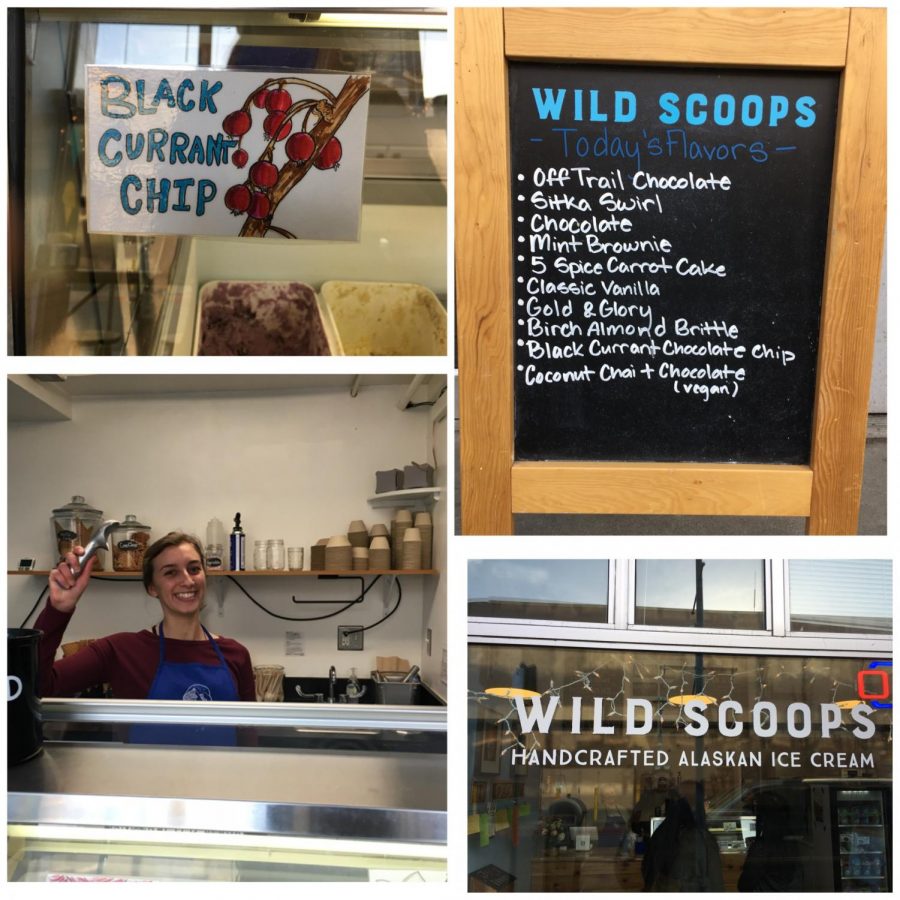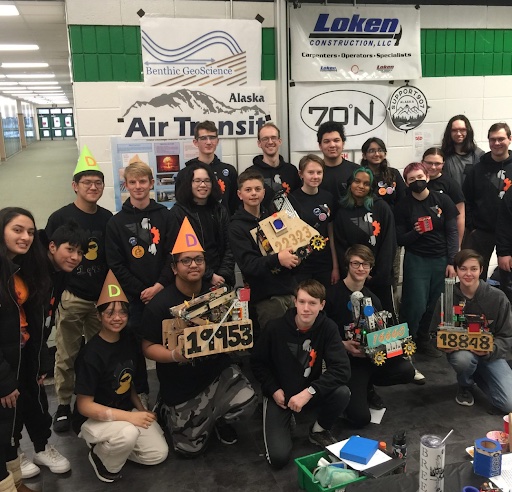Choose Local
May 6, 2018
Today, more than ever, local food businesses in Anchorage are trying to incorporate local ingredients into their products to help the environment and our community.
With our environment continually and rapidly declining, many believe we must look for ways to change our harmful habits and find more sustainable ways to live. In Alaska, the majority of food we eat comes from out of state and has to be shipped up to us, using a lot of resources and putting even more carbon into our atmosphere. Eating more local foods can help reduce this carbon footprint.
Katie Turner, the Environmental Systems teacher at West Anchorage High School, is very knowledgeable on this topic. She teaches her students about the impact of buying local foods as well as purchasing produce from farmers markets in the summer. Turner says that buying from local farmers can also decrease food waste because consumers are less likely to want to throw something away if they know who grew it and have that connection.
Ellisa Brown, the owner of Wild Scoops, is also passionate about helping the environment. “Acknowledging that there are just some things that do come from out of state, but then doing all we can to get the things locally that we are able to and then closing the loop by finding ways to compost and recycle at the same time,” said Brown.
Wild Scoops began more than five years ago when Brown took up the hobby of ice cream making. She then began sharing her crazy concoctions with friends, noticing that ice cream built a community. “I moved to Alaska about three and a half years ago, and I noticed that there wasn’t a local ice cream company. The kind of place that you can go meet friends, meet family, share a cone, share good times, and I thought maybe I should do this,” said Brown.
Wild Scoops sources their dairy from a small farm in the Pacific Northwest, but almost all other ingredients are found in Alaska. They use fresh produce from farmers markets, small family farms, and other small businesses. When winter begins and the growing season ends, they use rhubarb jam, which they produce during the summer, local tea and coffee, and local baked goods. Using these local ingredients in their products creates a sense of community between the customers and farms.
One local company that grows produce year-round is Alaska Sprouts, owned and operated by S J. Klein. They have been open for nine years, growing sprouts, microgreens, and tofu. Their sprouts are used in many restaurants throughout Anchorage and they also supply farmers markets in the summer. “Alaska Sprouts are sprouted here! The idea is that everything we grow, we grow here,” said Klein.
Both Klein and Turner agree on one thing: while eating local food is great for your body, the environment and community, it is not always the best option. “In some cases, it might be more detrimental to the environment in terms of your carbon footprint to produce vegetables in the Northern climate in the winter,” shared Turner. This is due to the artificial light and increased water necessary to grow produce indoors.
So next time you’re shopping, consider making the sustainable choice by buying local. It will support Anchorage’s local community and the environment.








Carter Stolp • May 18, 2018 at 12:21 pm
This article made me open up to buying local and keeping my body in shape for the coming baseball season.
Clirim Hukali • May 17, 2018 at 10:18 pm
This wonderful article really opened my eyes about buying local.
Daniel • May 17, 2018 at 6:11 pm
Maya did a great job on showing how some of the businesses in anchorage are trying to use more local ingredients which makes this article interesting.
Adait Mou • May 17, 2018 at 5:52 pm
I like how Maya got her research from someone who is educated in this topic because you can’t believe everything in the internet but this article has me convinced to go locally to help the world and my body. “
Ava • May 17, 2018 at 9:13 am
I think it’s really cool how Maya didn’t just choose one business, but got multiple business to say why it’s important to support local.
Jackson Pillifant • May 13, 2018 at 10:21 pm
This article really helps to show the efforts that businesses like Wild Scoops have gone to in order to create a healthier community and environment in Anchorage. It also shows how there are many things that you can do in order to aid in the fight against global warming.
Sophie Lee • May 13, 2018 at 2:19 pm
Great article! I love how you talk about the environmental effects of buying local. I feel like trying Wild Scoops ice cream now.
Raymond Vu • May 10, 2018 at 1:11 pm
Good article on explaining why places should also use local ingredients to help our environment
Alexander Carhart • May 8, 2018 at 1:46 pm
This is a really good article that makes people aware of the environment in Alaska. I like how Maya interviews several local business to promote and show how they are environmentally aware.